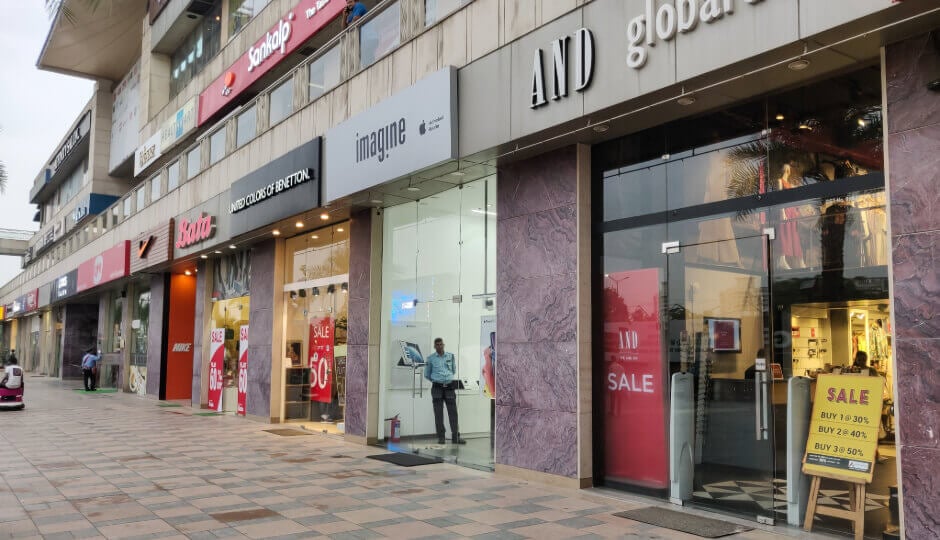Expanding in APAC - entity formation considerations for retail companies

As retail companies look beyond saturated domestic markets for new growth opportunities, the Asia-Pacific (APAC) region continues to stand out as a compelling location for expansion. With its rapidly growing middle class, digital-savvy consumers and diverse economies, APAC presents attractive prospects for retail investment, but there are also certain challenges to consider around entity formation.
There are several key considerations that retail businesses must address when establishing legal entities in the APAC region. This guide identifies the risks and opportunities, with a focus on Singapore, Australia, Thailand, Malaysia, Indonesia, Vietnam and the Philippines.
1. Choosing the right jurisdiction
Selecting the best jurisdiction for your business strategy is the foundation of successful expansion into APAC. APAC is not a monolith—each country presents distinct advantages as well as regulatory, cultural and operational nuances.
Singapore is renowned for its ease of doing business, robust legal framework and business-friendly tax regime. The city-state’s 17% corporate tax rate, absence of capital gains tax, and extensive double-taxation treaty network make it a preferred hub for regional headquarters. Singapore’s strategic location and advanced infrastructure further enhance its appeal for retail companies seeking efficient supply chain management.
Australia provides a stable, English-speaking environment with strong consumer protections and transparent legal systems. The country’s mature retail market, 25–30% corporate tax rate and comprehensive compliance requirements are balanced by a sophisticated workforce and high purchasing power.
Thailand is an increasingly important marketplace for luxury retail. It is closely linked to the nation’s continuously thriving tourism industry, with about 40 million visitors expected in 2025. In recent years, there has been a growing trend to purchase more goods in luxury malls and less in duty-free zones. Thailand’s market value continues to grow at CAGR 5-7% despite changes to the flow and composition of tourists. Luxury mall developments are providing new opportunities for brands to gain presence and market share; however, businesses should take note of the legal complexities around entity incorporation.
Malaysia, Indonesia, Vietnam and the Philippines represent high-growth, emerging markets with young populations and rising consumer demand. However, these jurisdictions often present more complex regulatory environments, including foreign ownership restrictions, sector-specific licensing and evolving investment incentives.
For example, Indonesia’s Positive Investment List and risk-based licensing system have liberalized many sectors, but certain retail activities still require local partnerships or are subject to minimum capital requirements.
Before selecting a jurisdiction, companies must assess market potential alongside local laws and regulations for foreign ownership, import duties and investment incentives.
2. Entity type and legal structure
The choice of entity has significant implications for liability, tax and operational flexibility.
A private limited company is the most common entity type for foreign investors in the majority of APAC countries. It is favoured by Singapore as it offers limited liability, flexibility in shareholding and straightforward compliance.
Australia distinguishes between proprietary limited companies (Pty Ltd) and public limited companies, with the former being most common for foreign entrants.
A branch office is another frequently used option, as it allows the parent company to operate in the new market without creating a separate legal entity. This significantly reduces in-house administration burdens and compliance requirements, but it can also limit options when hiring local workers or contractors.
Nearly all APAC countries allow the establishment of a representative office. These structures are useful for early-stage market exploration, but as they are prohibited from revenue-generating activities, they work best for non-commercial enterprises.
3. Foreign ownership and licensing restrictions
Foreign ownership rules vary widely across APAC and can significantly impact market entry strategies. Investors should be aware that certain jurisdictions limit foreign ownership in retail or require joint ventures. Understanding sector-specific restrictions is critical to avoid costly restructurings once the new retail has been established.
Singapore generally permit 100% foreign ownership in most sectors, including retail, with minimal restrictions. However, certain regulated activities (eg. financial services) may require local licensing.
Australia imposes few restrictions on foreign ownership, but certain sectors (eg. real estate, critical infrastructure) may require Foreign Investment Review Board (FIRB) approval.
In the Philippines, under the Retail Trade Liberalisation Law, foreign investors in the retail sector are no longer required to get a pre-qualification certification for the Board of Investments (BOI); they simply need the minimum paid-up capital of PHP25mn (US$500,000). Retail firms planning to open more than one physical store can now invest a minimum of US$200,000 per store, a significant reduction from the previous minimum of US$830,000.
Malaysia allows 100% foreign ownership in many sectors, but retail activities may be subject to equity conditions or require Bumiputera (indigenous Malay) participation.
In Indonesia, some retail sub-sectors require local partnerships or are subject to minimum capital and local content requirements.
Thailand has ownership restrictions under the Foreign Business Act, which may require a Foreign Business License unless certain capital thresholds are met. On the other hand, India permits 100% foreign direct investment (FDI) in single-brand retail, but multi-brand retail remains restricted.
4. Tax and transfer pricing considerations
Tax regimes across APAC are diverse and require careful planning to ensure compliance. The structure of the entity impacts local tax obligations. Corporate structures in APAC are increasingly choosing to have a holding company in Singapore, where dividends are rolled up for tax-efficient repatriation back to headquarters.
These are three key tax considerations that investors should plan for:
- Corporate income tax rates, which vary significantly from one country to the next – for example, 17% in Singapore versus 25-30% in Australia
- Goods and services tax (GST) and VAT affect pricing and supply chain planning. These taxes range from 9% GST in Singapore to 12% VAT in Indonesia and the Philippines
- Tax audits are common in the retail industry and can be onerous, particularly in Indonesia and the Philippines. Audit-related costs (legal, advisory, documentation) can reach 0.5%–1.5% of revenue and fines can range from 5-20% of assessed underpaid tax, depending on severity and intent
Transfer pricing refers to the import duties, royalties, management fees and other intercompany transaction charges for the transfer of goods, services or intangibles. Transfer pricing rules are affected by free trade zones, cross-border transactions and OECD standards. Retailers must ensure that their entity and supply chain models align with local tax laws to avoid audits and penalties.
5. Employment and labour compliance
Retailers must navigate a complex web of labour laws, social security obligations, employee benefits and workforce management practices when expanding into APAC.
Singapore has comprehensive employment mandates that set the minimum standards for contracts, leave and termination.
Australia enforces strict labour protections, including minimum wage, maximum working hours and mandatory superannuation contributions.
Vietnam, Indonesia, Malaysia and the Philippines all mandate social security contributions, but they vary in the flexibility of their labour laws. Other countries like South Korea and Japan have very stringent labour laws, which add to compliance complexities.
6. Operational licensing and permits
Beyond entity registration, retail businesses must secure a range of licenses and permits to operate in compliance with local regulations.
All APAC jurisdictions require import/export licences. Some, like Singapore and Australia, require specific licenses for e-commerce activities, with Australia going one step further and issuing e-commerce licenses that are subject to the same consumer protection laws as brick-and-mortar stores.
Businesses may need to register to sell specific products, particularly cosmetics or food, and may also be subject to store-specific permits.
Indonesia’s risk-based licensing system determines requirements based on the risk profile of a business, while Vietnam requires licenses for retail distribution and may limit the number of outlets for foreign retailers.
Licenses can take time to secure. Delays in obtaining the correct sequence of permits can derail launch timelines, so it’s crucial that companies get legal advice as early as possible.
7. E-commerce and digital operations
Digital retail is booming across the APAC region, but regulatory environments are evolving just as rapidly. For retailers looking at e-commerce first business models, there are several key considerations:
- Data privacy laws
- Cross-border payment restrictions
- Platform registration requirements
Singapore has advanced digital commerce frameworks, with clear rules on data privacy (PDPA in Singapore), cross-border payments and platform registration. Australia enforces the Privacy Act and Australian Consumer Law for online retailers, with additional requirements for data protection and digital marketing. India mandates the PDP Bill for data privacy.
E-commerce platforms must understand which authorities to register with and adhere to local consumer protection standards.
Talk to us
Expanding into APAC offers significant upside for retail companies, but success requires thoughtful planning and rigorous compliance. Choosing the right jurisdiction, forming a compliant entity and aligning with local operational and tax requirements are foundational steps.
Our APAC experts provide in-country support for your expansion, offering local legal, accounting and corporate services. Chat with us today and find out how we can support your APAC retail strategy.





